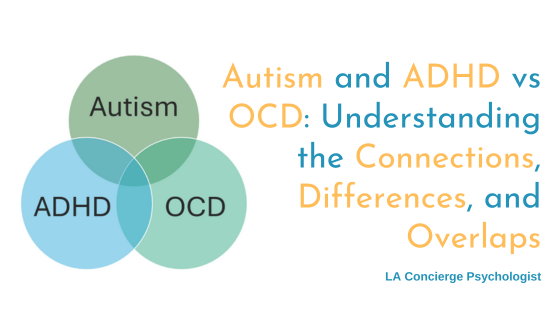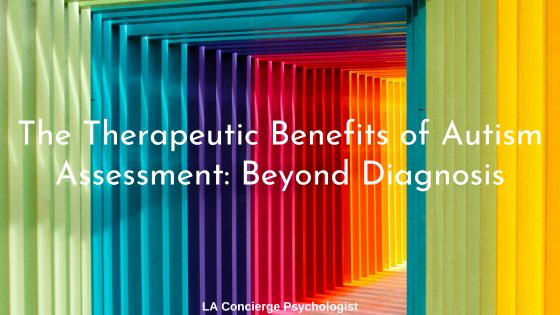Love is the foundation of any strong marriage or partnership, so it’s important to show your partner how much you care. But what if your demonstrations of love aren’t well-received? If your partner doesn’t seem to appreciate—or even notice—your efforts, you may feel frustrated and confused. At the same time, your partner may doubt whether you genuinely love them. This is a common scenario, especially for people in mixed neurotype (particularly with autism) romantic relationships.
Why does this happen? One possibility is that you and your partner may be showing your affection in very different ways—especially if you’re autistic and they aren’t. In other words, you may be speaking different “love languages.” According to Dr. Gary Chapman, there are five different love language types: words of affirmation, quality time, acts of service, physical touch, and gifts.
Why love languages are important for mixed-neurotype couples
If your loving gestures aren’t having the desired effect, you may wonder how to show affection in a way your partner understands.
People typically use a mixture of love languages to express affection, but most focus on one or two types. For example, you might be most receptive to acts of service and quality time, but your partner might respond better to gifts and physical touch. And therein lies the problem: If you and your partner are speaking different love languages—and you don’t realize you’re speaking different love languages—your messages of love will pass each other by without ever being received.
By learning more about love languages, you can ensure that the loving gestures that pass between you are seen and appreciated, introducing greater connection and intimacy into your relationship.
An autism-aware review of Chapman’s five love language types
Read our descriptions below to learn about Chapman’s five love language types. The examples we’ve provided will help you figure out your love language and your partner’s. They’ll also illustrate how some of the most common autistic traits can affect a person’s preferred love language.
As you read about each love language type, keep in mind that we’re not asking you to switch to your partner’s love language. However, we do recommend that people in mixed neurotype (with consideration to autism) romantic relationships express their affection in their partner’s preferred language as often as they feasibly can.
At first, it might feel insincere to try to express your sentiments of love in your partner’s language. You might worry that it will feel “fake” to express yourself in a way that doesn’t really resonate with you. But let us ask you this: Would it be “fake” or insincere to learn a few words of Spanish to better communicate with a Spanish-speaking person?
Of course not, and the same goes for love languages. As long as your affection is genuine, expressing yourself through your partner’s love language isn’t about fakery. It’s about learning to communicate more effectively with someone whose needs may be very different—but are no less valid—than your own.
The words of affirmation love language
This is one of the love language types most frequently preferred by neurotypical people. It’s characterized by a desire to receive loving and supportive messages either aloud or written down. For example, if your partner speaks this love language, it probably means the world to them when you send encouraging text messages (“Good luck on your big presentation today! You got this!”). They probably also appreciate compliments and other verbal expressions of love.
If your partner wishes to receive your affection through the words of affirmation love language, they will probably offer a lot of affirmation to you, as well. But perhaps their compliments make you feel awkward, they don’t feel sincere, or you dislike how their comments put you in the spotlight. Your dislike or words of affirmation may be related to your personality (or even your autism– seriously, how is someone supposed to react to praise or tons of attention?!). And that’s perfectly okay. It’s just that your partner’s affection might be better expressed through another love language.
The quality time love language
Do you like working side-by-side with your partner while doing chores or working on hobbies? Are you compelled to share lots of information with them about your interests? Do you value being near them, even when you’re just “being alone together”? For example, you might sit on the same couch with your feet in their lap while you both play on your phones.
If any of this sounds familiar, you may favor the quality time love language. Your partner can best show their love by setting aside time for you, even if that time is entirely unstructured. It would probably also mean a lot to you if they could occasionally encourage you to talk about your interests, even if they don’t share them.
The acts of service love language
If this is one of your favored love languages, you probably put a lot of effort into helping your partner solve problems and improve their life. For example, if they tell you they have a food allergy, you might help them research recipes that will work for their diet and cook them allergy-friendly meals.
On the other hand, maybe it’s your partner who prefers the acts of service love language. For example, they might like to surprise you by helping with your household chores, but you have trouble appreciating their efforts. Maybe it’s important to you to have a predictable routine, or it annoys you to have your possessions moved around. If you’re in this situation, you’ll need to talk with your partner about your different love languages and reassure them that they are appreciated (even if their cleaning services aren’t).
The physical touch love language
If you’re autistic, this love language may be hit-or-miss for you. For example, random gentle touches on the arm can feel shocking or surprise hugs from behind might be way too stimulating. On the other hand, it might be deeply soothing when your partner gives you a tight hug or firm massage when you’re in the right mood.
In any relationship, it’s essential to communicate your preferences and boundaries around touch. It’s especially crucial if the physical touch love language is primary for you or your partner. How much contact do you like and when? What kinds of touch—holding hands, resting your feet on their lap, a squeeze on the shoulder, sex—are your favorites? What are theirs? Find out and communicate.
The gifts love language
This language is the least common and probably the most misunderstood. If your partner values gifts and you do not, you might think they are shallow. You might be right if they insist on being gifted expensive things you can’t afford! But that would make them materialistic, which is not the same as having a gift-centric love language.
People who legitimately prefer the gifts love language say it isn’t the gift that matters, but the sentiment behind it. When you buy a small trinket for your partner, it shows you’re thinking about them. When you give your partner something you know they’ll like, it shows that you support their interests and want them to be happy.
If gifts are your partner’s primary love language, that doesn’t mean you need to spend a lot of money. Some gifts cost nothing at all. If they like a particular TV show or movie, for example, you could find a meme based on it and send it to them. If they love food, you could add a small treat to your cart at the grocery store and surprise them with it. Something as small as handing them a wildflower or cool rock when out walking would be another easy but thoughtful way to show affection.
Start speaking your partner’s language
Being in a mixed neurotype relationship can be incredibly fulfilling and frustrating, especially if you’re not speaking the same “language”. Because of the double empathy problem, mixed neurotype couples can struggle with communication and connection. As adult autism specialists, we are skilled at helping bridge the communication gap. Send us a message to see how we can help or book a free 20 minute consultation call with one of our specialists, Dr. Barajas or Dr. Goldman.



